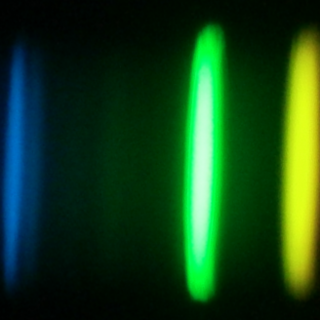Bibcode
Zschocke, S.; Ziaeepour, H.; Wilkinson, M. I.; Wichmann, R.; Wallut, J. -M.; Virtanen, J.; Veltz, L.; Van Hamme, W.; Valles, P.; Vachier, F.; Vaccari, M.; Tur, D.; Tsalmantza, P.; Troisi, L.; Tiede, C.; Theil, S.; Terrell, D.; ter Linden, M.; Straižys, V.; Sosnowska, D.; Soffel, M.; Slezak, E.; Sinachopoulos, D.; Silva, H.; Siebert, A.; Short, A.; Serraller Vizcaino, I.; Sembay, S.; Russo, F.; Ruiz-Fuertes, M. I.; Rosen, S.; Rocca-Volmerange, B.; Risquez, D.; Rebordao, J. M.; Raison, F.; Prod'homme, T.; Prat, G.; Poels, J.; Pigozzi, E.; Pieniluoma, T.; Péturaud, F.; Peralta, J.; Peltzer, C.; Pasquato, E.; Park, P.; Palmer, M.; Ouzounis, A.; Oszkiewicz, D.; Osorio, J.; Ortiz, P.; Olias Sanz, A.; Ocvirk, P.; O'Flaherty, K. S.; Nordlander, T.; Nguyen, A. -T.; Munari, U.; Mignot, S.; Meynadier, F.; Massart, B.; Martinez-Rubi, O.; Martayan, C.; Marseille, M. G.; Makarov, V. V.; Loreggia, D.; Liu, C.; LeBouquin, D.; Lainey, V.; Kutka, A.; Kos, J.; Kolka, I.; Kochukhov, O.; Knude, J.; Klar, J.; Klagyivik, P.; Kim, D. -W.; Keil, R.; Jonckheere, A.; Joliet, E.; Janotto, A. -M.; Isasi Parache, Y.; Iannicola, G.; Hoar, J.; Heyrovsky, A.; Gueguen, A.; Grux, E.; Gómez, A.; Gomboc, A.; Gebran, M.; Gardiol, D.; Gallegos, J.; Gallardo, E.; Fyfe, D.; Fustes, D.; Fries, A.; Frézouls, B.; Fodor, F.; Dubath, P.; Domingues, C. D.; Delle Luche, C.; de Zeeuw, P. T. et al.
Referencia bibliográfica
Astronomy and Astrophysics, Volume 601, id.A19, 65 pp.
Fecha de publicación:
5
2017
Revista
Número de citas
97
Número de citas referidas
85
Descripción
Context. The first Gaia Data Release contains the Tycho-Gaia Astrometric
Solution (TGAS). This is a subset of about 2 million stars for which,
besides the position and photometry, the proper motion and parallax are
calculated using Hipparcos and Tycho-2 positions in 1991.25 as prior
information. Aims: We investigate the scientific potential and
limitations of the TGAS component by means of the astrometric data for
open clusters. Methods: Mean cluster parallax and proper motion
values are derived taking into account the error correlations within the
astrometric solutions for individual stars, an estimate of the internal
velocity dispersion in the cluster, and, where relevant, the effects of
the depth of the cluster along the line of sight. Internal consistency
of the TGAS data is assessed. Results: Values given for standard
uncertainties are still inaccurate and may lead to unrealistic
unit-weight standard deviations of least squares solutions for cluster
parameters. Reconstructed mean cluster parallax and proper motion values
are generally in very good agreement with earlier Hipparcos-based
determination, although the Gaia mean parallax for the Pleiades is a
significant exception. We have no current explanation for that
discrepancy. Most clusters are observed to extend to nearly 15 pc from
the cluster centre, and it will be up to future Gaia releases to
establish whether those potential cluster-member stars are still
dynamically bound to the clusters. Conclusions: The Gaia DR1
provides the means to examine open clusters far beyond their more easily
visible cores, and can provide membership assessments based on proper
motions and parallaxes. A combined HR diagram shows the same features as
observed before using the Hipparcos data, with clearly increased
luminosities for older A and F dwarfs.
Tables D.1 to D.19 are also available at the CDS via anonymous ftp to http://cdsarc.u-strasbg.fr (http://130.79.128.5) or via http://cdsarc.u-strasbg.fr/viz-bin/qcat?J/A+A/601/A19
Proyectos relacionados

Abundancias Químicas en Estrellas
La espectroscopía de estrellas nos permite determinar las propiedades y composiciones químicas de las mismas. A partir de esta información para estrellas de diferente edad en la Vía Láctea es posible reconstruir la evolución química de la Galaxia, así como el origen de los elementos más pesados que el boro, forjados principalmente en los interiores
Carlos
Allende Prieto